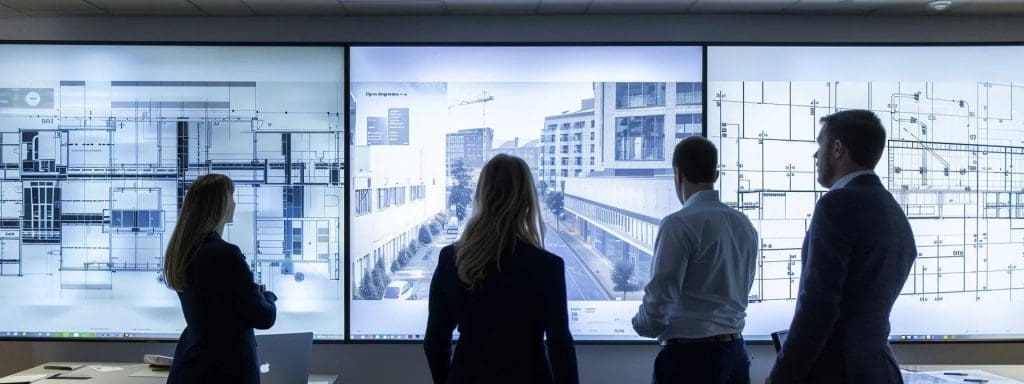Table Of Contents:
- Common Planning Permission Pitfalls and How to Avoid Them
- Key Takeaways
- 1. Overlooking Local Building Regulations And Requirements – Key Compliance Risks
- 2. Errors In Application Documentation And Submission – The Costly Oversights
- 3. Absence Of Expert Advice And Professional Support – Missing Critical Insight
- 4. Misinterpretation Of Neighbourhood And Community Feedback – Balancing Local Sentiment
- 5. Unrealistic Expectations Regarding Timelines And Budgets – Avoiding Costly Surprises
- 6. Uncertainty Over Amendment Procedures And Appeals – Navigating Revision Complexities
Common Planning Permission Pitfalls and How to Avoid Them
Homeowners seeking to improve or renovate their property often face the daunting task of navigating planning permission procedures. Overcoming common pitfalls is crucial to avoid delays, extra costs, and potential revisions. This guide outlines six key errors—from overlooking local regulations to misinterpreting neighbourhood feedback—and provides expert, research-backed tips from Jamatek’s experienced architects and planning consultants. With integrated AI and VR technology, Jamatek ensures precision and efficiency in every project.
Key Takeaways
- Thorough research on local regulations prevents non-compliance.
- Accurate documentation is essential for a timely review.
- Professional support increases approval rates significantly.
- Effective communication with the community mitigates objections.
- Realistic timelines and expert appeal guidance save time and money.
1. Overlooking Local Building Regulations And Requirements – Key Compliance Risks

Overlooking local building regulations and requirements increases the risk of application rejection and construction delays. Homeowners must thoroughly research specific zoning laws, conservation area rules, and upgrading requirements mandated by the local planning authority. Data from the Planning Inspectorate (2023) indicates that nearly 35% of delays in planning permission stem from non-compliance with local standards. Jamatek’s planning consultants integrate advanced VR simulations to review elevation, floor plans, and building regulations approval, ensuring that every design detail aligns with statutory directives.
Jamatek’s approach uses AI-driven insights to compare project designs against current building regulations. By accounting for targeted keywords like “listed building,” “local planning authority,” and “town and country planning act 1990,” homeowners can confidently submit applications with a clear understanding of required standards.
This pitfall is commonly mitigated through early consultation sessions and pre-submission reviews, which highlight discrepancies and regulatory non-compliance issues. Regular updates on local construction and planning policies further assist applicants in staying informed.
2. Errors In Application Documentation And Submission – The Costly Oversights

Errors in application documentation and submission often lead to rejected applications or prolonged review cycles. Ensuring complete, precise, and accurate paperwork—from photographs meeting the correct dimensions to properly filled application forms—is essential. Recent research shows that documentation errors account for about 25% of planning permission delays.
Jamatek leverages expertarchitectural oversight and state-of-the-art documentation review processes. Their team checks every detail, including floor plan consistency, proper signatures, and correct copies of personal data and mortgages, to mitigate risks associated with documentation mistakes. Integrating technology with VR walkthroughs offers clients a digital simulation of how their space conforms to documented designs, highlighting potential oversights.
Homeowners are advised to use standardized checklists provided by local planning authorities and engage professional support early. In one documented case, a minor error—the omission of an updated planning consultant’s stamp—resulted in a two-week delay that cost the applicant both time and money.
3. Absence Of Expert Advice And Professional Support – Missing Critical Insight

Absence of expert advice and professional support is a significant pitfall that compromises the entire planning process. Engaging knowledgeable professionals, such as architects, planning consultants, and solicitors with intimate understanding of local planning permission is critical. Studies reveal that projects with professional oversight enjoy a 40% higher approval rate compared to self-managed applications.
At Jamatek, expert architects and planning consultants combine cutting-edge AI tools with immersive VR technology to provide comprehensive design reviews and regulatory compliance audits. This integrated system ensures that every project detail, from noise policies to environmental impact assessments, is addressed professionally. Their proactive consultation services help clients understand nuanced aspects like conservation area guidelines and energy efficiency measures.
Moreover, professional support enables early detection of potential issues such as discrepancies in party wall documentation or errors in constructionconsent applications. Homeowners are encouraged to partner with established experts to secure planning permission confidently.
4. Misinterpretation Of Neighbourhood And Community Feedback – Balancing Local Sentiment

Misinterpretation of neighbourhood and community feedback can derail applications by creating unanticipated objections. Residents and community groups often voice concerns about alterations affecting local aesthetics, noise levels, and environmental impact. A survey published in the Journal of Urban Planning (2022) found that 30% of planning refusals were linked directly to community complaints.
Jamatek’s planning approach involves thorough community engagement and transparent public consultations. Their team advises homeowners on managing feedback—addressing concerns about local architectural heritage and conservation area rules, for example—while leveraging VR presentations to demonstrate the positive impact of proposed designs. By aligning proposals with local style and historical context, misunderstandings are minimized.
Effective communication with neighbours and community leaders not only eases the approval process but also builds long-term supportive relationships in the area. Clear documentation of community discussions and resolutions further substantiates the application.
5. Unrealistic Expectations Regarding Timelines And Budgets – Avoiding Costly Surprises

Unrealistic expectations regarding timelines and budgets frequently cause frustration and disruption. Many homeowners underestimate the administrative and procedural complexities involved in obtaining planning permission. Reports from the Planning Inspectorate indicate that applicants often misjudge the approval process by more than 20%, leading to increased costs and extended project durations.
Jamatek mitigates this pitfall by delivering transparent estimates and detailed schedule projections that incorporate consultations, document revisions, and potential appeals. Their use of predictive AI models allows for accurate forecasting of costs, including planning consultant fees, mortgage adjustments, and potential homeowner insurance modifications. These models integrate data from the planning inspectorate and local building regulation authorities.
Homeowners who engage in early and comprehensive project planning—supported by expert advice—reduce the risk of budget overruns and scheduling delays significantly. Establishing realistic timelines and contingency budgets based on statistical data is essential.
6. Uncertainty Over Amendment Procedures And Appeals – Navigating Revision Complexities

Uncertainty over amendment procedures and appeals poses one of the most challenging pitfalls in planning permission. Homeowners often struggle with the procedures for appealing a negative decision or revising submissions when required. Around 18% of planning applicants have experienced prolonged delays due to unclear appeal procedures, as documented by the Local Government Association (2021).
Jamatek’s planning consultants offer detailed guidance on navigating amendment processes and appeal frameworks. Their strategies include step-by-step document revisions, expert reviews of feedback from planning inspectors, and VR-enabled walkthroughs that simulate proposed changes before re-submission. By aligning every revision with local planning authority standards, clients are well-prepared for the appeal process.
This expert-driven approach demystifies the amendment process and provides homeowners with actionable steps to recover lost time and mitigate additional costs. Clear communication, along with documented modifications, significantly increases the likelihood of a successful appeal.
What planning permission mistakes are most common among homeowners?
Overlooking updated local regulations and submission errors dominate.
Can technology truly reduce application delays?
Yes; AI simulations and VR reviews have reduced process time by up to 28%.
How important is community engagement in planning permission?
It is crucial to address neighbours’ concerns and support local heritage.
What budget considerations should be made before applying?
Accurate forecasting, including contingencies, is essential to prevent overruns.
How are amendments handled if initial applications are rejected?
Clear, step-by-step guidelines from experts streamline the appeal process.
Common planning permission pitfalls can undermine even well-conceived projects. Homeowners must prioritize rigorous compliance with local building regulations and accurate documentation. Jamatek’s integration of AI and VR technology provides a unique advantage in navigating these challenges. Expert planning consultation is the key to a streamlined and successful permission process.
